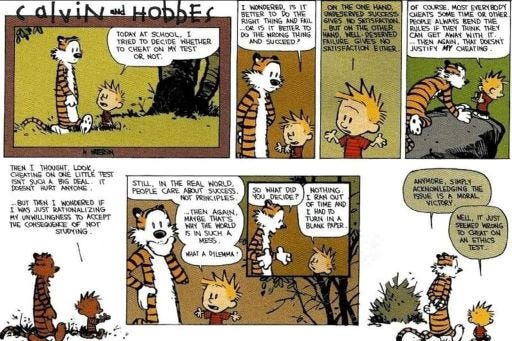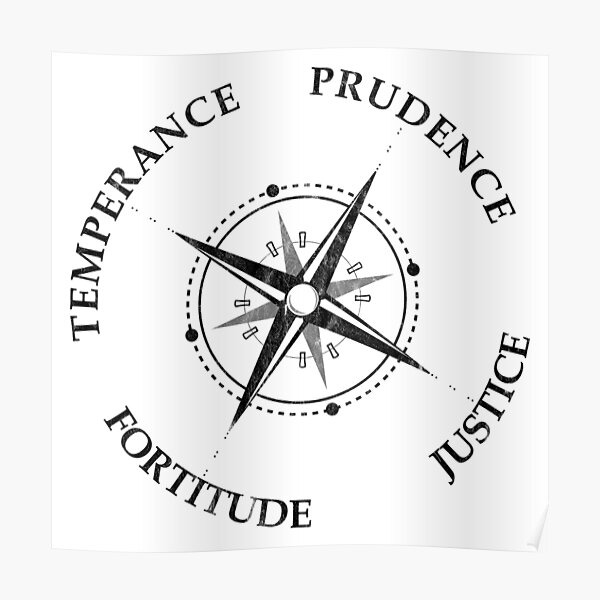FC #146 raised the question: “Should I continue or take a hiatus after FC 156 or post FC once a month instead of once a week?” None of the readers expressed any opinion, and they seem to have left it to me. For now, I will focus on writing the next 9 posts leading to the third anniversary of FC.
Responding to the dilemma I mentioned, N S K Prasad, a nonagenarian, threw this question back at me: “I continue to read and enjoy Filter Coffee though I do not post any comments. I read about the horns of a dilemma and the question “Have you stopped beating your wife?”, which must be answered with either a ‘Yes’ or a ‘No’. How will you put the same question to someone with more than one wife? How does that person say that it is he who is getting beaten up?”
Shahji Jacob says: “As usual, reading through Pras's writings is indeed very delightful and interesting, not to mention the wide range of learnings one gets in the process. I like his way of providing the link for whatever he refers to. Another thing I like about his writings is the extent he goes to explain a term, I didn’t think he would discuss the movie Sophie’s Choice While discussing the term ‘on the Horns of Dilemma’ in FC #146. Incidentally, the novel won the award in 1980 for US National Book Award for Fiction.”
Krupa Murthy says: “A philosopher lifts you out of moral dilemmas! After enjoying your fresh and frothing Filter Coffee, it helped me come out of a seemingly impossible spot whether to comment or not.”
M A Ganesh says: “Thanks Prasanna, excellent reading of all FCs. The dilemma for Coorg voters this time was whether to continue to support central leadership or give a chance to our local boy, who managed a ticket. Hard campaigning won by a thin margin. Wishing you would have no dilemma continuing to post FC!”
Shereyar Vakil says: “Dear Pras, Shakespeare articulated the classic dilemma in Hamlet. ‘To be or not to be’. You were on the horns of a dilemma when you wondered if you should continue posting Filter Coffee or take a break. Carry on, brother.”
Tarun Kunzru says: “Nice read, Pras. I guess in the case of moral and ethical dilemmas the filter hierarchy would be – Conscience followed by Reason and then by Feelings. In commercial dilemmas, it would be – Reason then Conscience and then Feelings. My mantra is – don't make decisions when you are Tired, Hungry, Angry, or Hazy.”
Tarun has also shared this comic strip of Calvin which humourously depicts a ‘moral dilemma’.
🔥 Fire in the Belly
The simplistic meaning of this phrase is ‘desire’, which is a strong feeling of wanting to accomplish something or possess something. A student desiring to do well, an athlete wishing to excel, an activist passionately campaigning to make a difference and touch lives. When we have a burning desire it represents the resolve to accomplish something against all odds. Overcoming the odds requires courage and conviction. The courage of conviction is the state of mind that enables a person to take strong decisions without fearing the repercussions.
Fire in the belly without the courage to pursue the path of realisation of a desire is like sitting in front of a fireplace, basking in its warmth and fantasizing. While the fire in the belly is representative of a strong desire, courage is the concomitant virtue that helps realise that desire.
Aristotle talks of virtues and says that persons are not born virtuous. Virtue is the result of continuous moral action in a social environment. He goes on to emphasise four moral virtues:
Prudence
Temperance
Courage
Justice
It is not enough if you have a fire in your belly. You need the courage to pursue the desire within.
That courage is not just bravado. It should be tempered with prudence, which helps the person visualise the consequences of his action. Temperance is the degree of moderation that helps a person pursue desire with practicality. Justice is a virtue which, Aristotle believes, helps determine if a courageous act is to the detriment of others or is at the cost of someone or something else. Courage is a virtue that helps a person face a challenge or overcome fear and anxiety when pursuing a desire that stems from the fire in the belly.
As one can see, fire in the belly is a state of realistic desire which must be realised by combining all four virtues, namely, courage, prudence, temperance, and justice. Some emphasis is required on the word ‘realistic’. I may have the desire to go to the base camp of Everest and do some trekking. But is my desire realistic given that it requires a particular mental disposition and physical stamina? Maybe or maybe not, is what prudence will help you realise.
The all too familiar phrase ‘discretion is the better part of valour’ rings true in the context of pursuing something which puts one at peril or puts others at peril. If someone brandishes a gun in your face would you suffer the frisk or incur the risk of being shot if you resisted?
Let us go a long way back in literary history. Shakespeare’s Henry IV, Part-1 features Falstaff, a companion of Prince Hal (who later becomes King Henry V of England). To cut the narrative short, in the scene, Prince Hal finds Falstaff dead on the battlefield and leaves the stage without realising that Falstaff had pretended to be dead to save himself from being killed. After the Prince exits, Falstaff says “The better part of Valour, is Discretion” His logic would be that it is foolish to act brave and be dead.
Agonising over something which cannot be accomplished or feeling envious of someone else’s achievements can result in a different kind of fire in the belly, also known as heartburn. Every person has limitations within which one may accomplish a feat. There is nothing wrong in raising the bar and aspiring to excel, but it requires mental resolve and training. Speaking of excellence, one is reminded of what Aristotle said: “We are what we repeatedly do. Excellence, then, is not an act, but a habit.”
Fire in the belly or an insatiable hunger fuels the pursuit of excellence. It is not about one-upmanship, it is about excelling yourself. To excel, you need to be competent at what you do. As Olympic swimmer Mark Spitz put it, “We all love to win but how many people love to train?”. If you wish to be ahead of the pack you need to train not just the body, but the mind too. If you lack focus and the mind wanders, you are unlikely to make an impact, let alone excel.
One-upmanship was coined by the British writer, Stephen Potter while writing his book also called One-Upmanship. Please check out this link: 🔗Stephen Potter. The term refers to the practice of ‘creative intimidation’, making one's associates feel inferior and thereby gaining the status of being ‘one-up’ on them. According to Wikipedia, the film “School of Scoundrels” a 1960 British comedy film, was inspired by the ‘Gamesmanship’ series of books by Potter. There are two remakes of the film: School for Scoundrels (2006) and 🔗Chotisi Baat (1975).
Should you be an extraordinary person to pursue excellence? Not necessarily. A person can pursue excellence if he does not suspect his capability to do something but goes about finding out how it can be done mindful of challenges that lie ahead.
Passion can be of no consequence if it is not acted upon. Passion fuels action and action intensifies the passion. Fire in the belly is nothing but intense passion, and it extinguishes itself if that fire does not fuel the desire to act and excel. In short, it is all about turning passion into potential.
As a relief from the fire in the belly, some may look for a belly full of laughter. Here’s something that will not make clutch your stomach but may make you say aargh!
A guy who had a fire in the belly to become the best firefighter, outperformed himself, and was given the award “most extinguished employee”!
OK folks, thanks to your encouraging readership, I will strive to think of something to write about. In other words, I shall try to be a thinker-inker: Bless me! Ciao!







!!! Fast Food
I enjoyed your post on 'fire in the belly' and how you show that it is the result of continuous moral action, prudence, courage and discretion in a social environment. You yourself are a model of this - passionate about being active, disciplined and helpful to others. Many people think that the 'fire in the belly' goes out as we age. I don't think so. It depends on how much we engage with life.